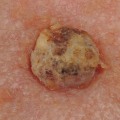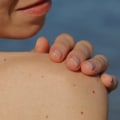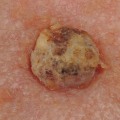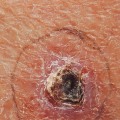Skin cancer is the most common type of cancer in the United States, with more than 3.5 million cases diagnosed each year. It is also one of the most preventable forms of cancer, as it is largely caused by exposure to ultraviolet (UV) radiation from the sun or tanning beds. Fortunately, there are a number of steps you can take to reduce your risk of developing skin cancer. One of the most important things you can do to protect your skin from the sun’s damaging UV rays is to wear sunscreen.
Look for a sunscreen with an SPF of at least 30 and make sure it is broad-spectrum, meaning it protects against both UVA and UVB rays. Apply sunscreen generously and reapply every two hours, or more often if you are swimming or sweating. Don’t forget to protect your lips with a lip balm that contains sunscreen. In addition to wearing sunscreen, it’s important to cover up when you’re out in the sun. Wear a wide-brimmed hat and sunglasses to protect your face, neck, and eyes.
Wear long-sleeved shirts and pants made from tightly woven fabrics that block out UV rays. If you can’t find clothing that provides adequate protection, look for clothing with an Ultraviolet Protection Factor (UPF) rating. When possible, seek shade during peak sun hours (10am-4pm). If you’re at the beach or pool, bring an umbrella or beach tent for extra protection. You can also use trees or buildings to create shade. Tanning beds are just as dangerous as the sun when it comes to skin cancer risk.
The UV radiation emitted by tanning beds is just as strong as the sun’s UV rays, so it’s best to avoid them altogether. It’s important to check your skin regularly for any changes that could be signs of skin cancer. Look for any new moles or changes in existing moles, such as size, shape, color, or texture. If you notice any changes, make an appointment with your doctor right away. In addition to checking your skin regularly, it’s important to see your doctor for regular skin cancer screenings. Your doctor will be able to detect any signs of skin cancer early on and provide treatment if necessary. By following these simple steps, you can reduce your risk of developing skin cancer and keep your skin healthy and protected from the sun’s harmful UV rays.
Remember to wear sunscreen every day, cover up when you’re out in the sun, seek shade when possible, avoid tanning beds, check your skin regularly for any changes, and see your doctor for regular skin cancer screenings.









